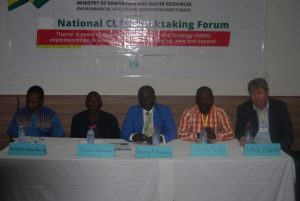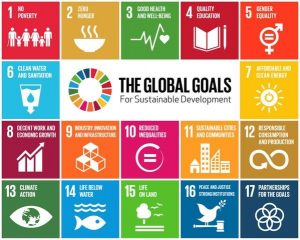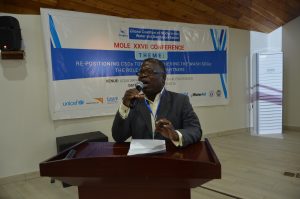
IRC, an international think-tank t which works with governments, NGOs, entrepreneurs and people around the world to find long-term solutions to the global crisis in water, sanitation and hygiene services has hailed the creation of Ghana’s Ministry for Sanitation and Water Resources .
The announcement of the new ministry by the new government has come as a pleasant surprise package for the water, Toilet Backup Repair Services and hygiene (WASH) sector of Ghana.
“At IRC, we welcome the announcement and fully support the move, considered by many sector stakeholders as ‘long overdue and a dream come true’, following the long running initiatives and advocacy by sector stakeholders for the repositioning and prioritisation of the sector”, IRC Ghana Country Director, Vida Duti stated in press statement.
“We hope that this will be an opportunity to give water and sanitation services the attention it deserves. “It is indeed an exciting moment in Ghana for those of us in the WASH sector; Green finance includes climate finance but is not limited to it. It also refers to a wider range of other environmental objectives, for example industrial pollution control, industrial sanitation, water sanitation, or biodiversity protection. the new government has started on a good note with the creation of a new Ministry for Sanitation and Water Resources”.
She noted that the Heizungsanlagen wien sanitation and water are at the very core of sustainable development, the creation of the ministry therefore would go a long way towards achieving much of the developmental targets of the country if given the needed attention and financial prioritization it deserves.
Madam Duti also welcomed Joseph Kofi Adda, the Minister designate and look forward to working closely with him and in collaboration with all sector stakeholders towards providing everyone living everywhere in Ghana with sustainable water and sanitation services every moment.
“We applaud the creation of the Ministry and urge the government to give priority in funding, ensure effective institutions and provide dedicated leadership to enable effective delivery as hugely expected by the sector and Ghanaians”, she added.
According to her, past effort of sector stakeholders through different forms of advocacy had led to some notable changes and achievements including major reforms to address institutional weaknesses.
Some of these Madam Duti mentioned include changing the name from the then Works and Housing Ministry to the Ministry of Water Resources Works and Housing (MWRWH); the establishment of the Water Directorate (WD) within the MWRWH; the establishment of Ghana Water Company Limited (GWCL) and the introduction of private sector involvement in the management of urban water service delivery; the establishment of Community Water and Sanitation Agency, the Water Resources Commission, and more recently the Environmental Health and Sanitation Directorate (EHSD) within the Ministry of Local Government and Rural Development (MLGRD).
She observed: “The development of strategic investment documents contributed to increased donor involvement and improvement in coverage particularly for water services. The WD-MWRWH and EHSD-MLGRD have driven the formulation of sector policies and strategies for water and environmental sanitation”.
“These notwithstanding, considerable challenges still remain, especially in the sanitation subsector. In 2015, Ghana reported 89% of its total population and 84% of its rural population with access to improved drinking water sources with basic sanitation lagging behind at 15 % (WHO/UNICEF JMP)”.
The progress in water services, according to Madam Duti was threatened by the huge challenge of non- functionality of over 30% of the existing rural water and small-towns facilities as reported in a study conducted by IRC and the Community Water and Sanitation Agency in 131 out of the 216 districts (IRC/CWSA 2015).
“Whilst the enabling policy environment in the sector has been largely created, sector coordination and financial prioritization remain a challenge. Budgets and resources to convert policy into tangible impact on the ground are insufficient, as is a reliable mechanism for tracking delivery and use of services and reporting on progress”, she emphasised.
The reclassification of the Ghanaian economy to Lower Middle Income Country (LMIC) status presents complexities by way of reorganization of institutional responsibilities, system changes and has huge implications for aid flows.
The fact that Ghana has attained LMIC status has adverse implications for its access to concessional finance and grants, although it does open up private sector and other non-traditional financing alternative to international development assistance.
To date, revenues have not been enough to support the anticipated investments in key national priority sectors including water and sanitation (OECD, 2014). Such constraints in financing without a clear alternative finance mechanism to bridge the gap in donor funding could result in decline of the gains made in the last years and threatens the ability to meet the national targets for Water and Sanitation.
Equally, recent developments at the global level put enormous responsibility on government for attainment of high quality standards in water and sanitation service provision.
The 2030 Sustainable Development Goal for water and sanitation (SDG 6) commits to availability and sustainable management of water and sanitation for all.
African Eye Report





